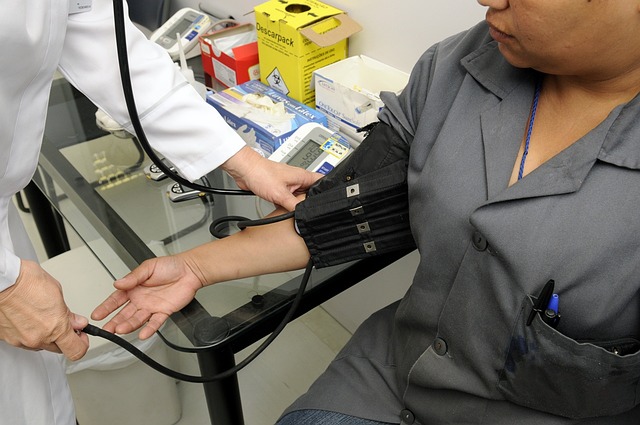Holistic therapies offer a comprehensive and personalized approach to treating Post-Traumatic Stress Disorder (PTSD) by addressing the interconnectedness of mind, body, and spirit. Techniques such as mindfulness meditation, yoga, art therapy, and acupuncture complement traditional treatments, providing effective symptom management and promoting relaxation, better sleep, and inner peace. Research supports the positive outcomes of holistic therapies for PTSD, making them promising additions to mainstream care with potential for improved patient outcomes.
Holistic therapies offer a promising approach to PTSD treatment, addressing not just symptoms but underlying causes. This article explores the multifaceted world of holistic care for PTSD, comparing traditional methods with alternative techniques like mindfulness, yoga, and acupuncture. We delve into the benefits, popular practices, and successful integration into care plans. Additionally, real-life success stories and future trends in holistic PTSD treatment provide valuable insights. Discover how these approaches can revolutionize recovery journeys.
Understanding PTSD and Its Impact

Post-Traumatic Stress Disorder (PTSD) is a mental health condition that can affect individuals who have experienced or witnessed a traumatic event, such as military combat, accidents, natural disasters, or violent attacks. It’s more than just feeling scared or anxious; PTSD changes a person’s response to events and can significantly impact daily life. Symptoms often include flashbacks, nightmares, severe anxiety, avoidance of situations reminiscent of the trauma, and heightened irritability.
The impact of PTSD extends beyond emotional distress, affecting various aspects of an individual’s life. It can lead to social isolation, difficulties in relationships, problems at work or school, and even physical health issues. Traditional treatments for PTSD often involve therapy and medication, but holistic therapies offer an alternative approach to healing. These methods focus on the whole person—mind, body, and spirit—and have been shown to be effective in managing PTSD symptoms, providing a more comprehensive and personalized form of treatment.
Traditional vs Holistic Approaches to Treatment

In addressing Post-Traumatic Stress Disorder (PTSD), traditional approaches often focus on symptom reduction through evidence-based therapies like Cognitive Behavioral Therapy (CBT) and Eye Movement Desensitization and Reprocessing (EMDR). These methods are highly effective, but they primarily target the symptoms rather than the underlying causes.
Holistic therapies, on the other hand, take a broader view by considering the interconnectedness of mind, body, and spirit. Techniques such as mindfulness meditation, yoga, art therapy, and acupuncture aim to restore balance and promote healing across these dimensions. By addressing the root causes and fostering personal growth, holistic approaches offer a more comprehensive and potentially transformative pathway for PTSD treatment.
The Benefits of Holistic Therapies

Holistic therapies offer a multifaceted approach to PTSD treatment, addressing not just the symptoms but the underlying causes. Unlike traditional talk therapy or medication, which often focus on the mind and specific behaviors, holistic treatments consider the intricate interplay between the mind, body, and spirit. This inclusive perspective is particularly beneficial for individuals with complex trauma histories, as it can help to regulate emotional responses, reduce stress, and promote overall well-being.
One of the key advantages of holistic therapies is their ability to provide a safe and non-judgmental space for individuals to process their experiences. Techniques like yoga, meditation, and art therapy encourage self-expression and mindfulness, enabling individuals to develop coping mechanisms that are personalized and sustainable. Moreover, these therapies can enhance traditional PTSD treatments by fostering relaxation, improving sleep quality, and cultivating a sense of inner peace—all of which are crucial for long-term recovery and resilience.
Popular Holistic Techniques for PTSD Relief

In the realm of PTSD treatment, holistic therapies offer a vibrant and promising approach to healing. Popular techniques include mindfulness meditation, yoga, and aromatherapy, which have been shown to alleviate symptoms and enhance overall well-being. These methods focus on the interconnectedness of mind, body, and spirit, recognizing that trauma affects individuals holistically.
One effective practice is eye movement desensitization and reprocessing (EMDR), combining eye movements with recall of traumatic memories. This technique helps individuals process and reframe these memories, reducing their distressing impact. Additionally, art therapy and music therapy provide safe outlets for expression, allowing folks to explore and release emotions associated with trauma. These holistic techniques offer a gentle yet powerful way to navigate the complexities of PTSD relief.
Integrating Holistic Practices into Care Plans

Incorporating holistic practices into care plans for PTSD treatment offers a multifaceted approach, addressing the profound impact of trauma on an individual’s mind and body. This integration acknowledges that healing is not solely cognitive but also involves nurturing the whole person—mind, body, and spirit. Techniques such as mindfulness meditation, yoga, and nature therapy can complement traditional talk therapies. These practices empower individuals to reconnect with their inner strength and develop healthy coping mechanisms, fostering a deeper sense of calm and resilience.
Holistic care plans tailor interventions to each patient’s unique needs, recognizing that PTSD manifests differently for everyone. For instance, aromatherapy and acupressure may provide relief from anxiety and sleep disturbances, while artistic expressions like art therapy or music can serve as therapeutic outlets for processing emotions. By incorporating these practices, treatment becomes more personalized and effective, ultimately enhancing the overall well-being and recovery of individuals navigating PTSD.
Success Stories and Future Directions

In the realm of PTSD treatment, holistic therapies offer promising success stories for individuals navigating this challenging condition. These approaches, which encompass a wide range of practices such as mindfulness meditation, yoga, art therapy, and acupuncture, are gaining recognition for their ability to target the mind-body connection. Many participants report significant improvements in symptoms, enhanced emotional regulation, and improved overall quality of life after incorporating these therapies into their recovery plans.
Looking ahead, the future of holistic PTSD treatment appears bright with ongoing research and increased integration into mainstream healthcare systems. As more studies validate their effectiveness, these therapeutic modalities are poised to become a fundamental component of comprehensive PTSD care. This shift not only promises better outcomes for patients but also underscores the importance of adopting innovative, patient-centered approaches in addressing complex mental health challenges.
